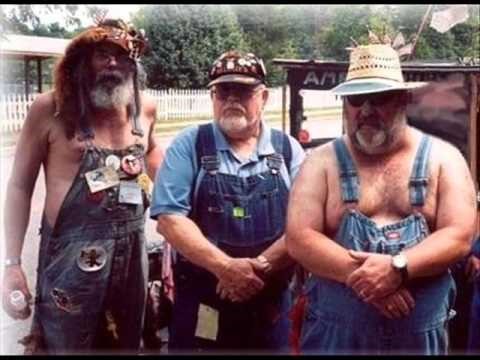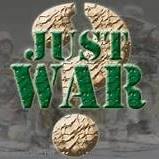In many ways, I did not like the way this book made me feel. I grew up in the land of rednecks, relatively poor but upwardly mobile. My parents held steady jobs and valued education. Poverty was temporary for us. But (and maybe because they were so upwardly mobile) my parents worshipped the bootstrap gospel. They believed fervently and taught us with equal fervor that our destiny was up to us. “Work hard, study hard and you will get ahead.”
I believed it completely. I was the teenager reading Ayn Rand, believing I was in control of my destiny so long as my work ethic remained inscrutable. People were responsible for themselves, I thought. Nobody was responsible to by my savior.
Suffice it to say that I grew out of such a black and white view of the world, especially in graduate school. Now, I balk at the bootstrap gospel. But this book uncovered the part of me that still looks at the poor and demands that they demand better for themselves. I don’t like feeling like that because it feels elitist and paternalistic. And in the “liberal bubble” I inhabit, saying such things is un-P.C. indeed. But J.D. Vance’s Hillbilly Elegy reveals there might be a place for such feelings.
Vance’s memoir introduces us to they poor hillbillies of the northern Appalachia region, hillbillies who have been devastated by coal and globalism. His picture of poverty is anything but romantic. There is alcoholism, drug abuse, domestic violence. And for Vance, there is a lot of responsibility the hillbillies bear for their poverty. He describes a time when him mom and partner were making a bunch of money, but still deep in debt because they spent money so frivolously—on cars and swimming pools, without saving for the future or investing. He describes the bitterness he felt as a young checker at a grocery store seeing customers with food stamps talking on fancy cell phones and buying liquor on a separate tab from their food stamps. He bitterly paints a picture of the welfare queens in his childhood neighborhood, living large but unemployed. But most of all, he talks about vice. Violence and promiscuity, breeding more violence and instability has created a culture where people feel almost destined for failure.
He writes,
For all my grandma’s efforts, for all of her “you can do anything;don’t be like those fuckers who think the deck is stacked against them” diatribes, the message had only partially set in before I enlisted. Surrounding me was another message: that I and the people like me weren’t good enough; that the reason Middletown produced zero Ivy League graduates was some genetic or character defect. I couldn’t possibly see how destructive that mentality was until I escaped it. . . I am not saying ability doesn’t matter. It certainly helps. But there’s something powerful about realizing that you’ve undersold yourself—that somehow your mind confused lack of effort for inability. This is why, whenever people ask me what I’d most like to change about the white working class, I say, “The feeling that our choices don’t matter.”
Vance’s narrative is clear. These people need to take some responsibility for themselves. Vance insists that until hillbillies stop blaming other people for their problems and start working to improve their lot, there isn’t much hope for change. The poor do have to take responsibility for themselves, and in many cases, the reason people stay poor is their own fault. Government policy can only go so far, and is not now, nor will ever go far enough until hillbilly culture is transformed. Reading the book, I felt hard-pressed not to feel the same.
However, the reason I think this book needs to be read by people on both sides of the aisle is because Vance does paint a more complicated picture. His own escape from the hillbilly hell he came from was not just due to his own initiative and ingenuity. He had a grandmother (Mamaw) who loved him, who sacrificed for him, who demanded he “get off his ass” and start working hard, and who ultimately saved him. He had a grandfather (Papaw) who drilled math problems at night with him. He had the military who taught him to be an adult. He had scholarships getting him through law school because of his poverty. Vance’s elegy is not a panegyric to the individual spirit that we find in Ayn Rand. It is a much more complicated ode to love and luck. Vance seems almost surprised to find himself as successful as he is, and he is anything but cocky. Vance is grateful.
And he does a marvelous job of presenting not only the vices but the virtues of hillbilly culture. Mamaw may have a mouth on her (and she did try to kill a man), but nobody was more dedicated to the success of her grandson. Vance poignantly describes the debts Mamaw died with, in large part because she was taking care of so many people.
Vance’s elegy is a reminder of the the both/and principle we find so often in Catholicism. When it comes to fighting poverty, it is both individual responsibility and collective efforts like public policy. To demand the poor do better for themselves does not mean that we do not owe them help. Vance writes,
The most important lesson of my life is not that society failed to provide me with opportunities. My elementary and middle schools were entirely adequate, staffed wit heaters who did everything they could to reach me. Our high school ranked near the bottom of Ohio’s schools, but that had little to do with the staff and much to do with the students. I and Pell Grants and government-subsidized low-interest student loans that made college affordable, and need-based scholarships for law school. I never went hungry, thanks at least in part to the old-age benefits that Mamaw generously shared with me. These programs far far from perfect, but to the degree that I nearly succumbed to my worst decisions (and I came quite closet), the fault lies almost entirely with factors outside the government’s control.
Hillbilly Elegy is an important read. It is a balanced contribution to a discourse about “middle America” that we so desperately need to have post-Trump, but need to have on clear, calm, and rational grounds. Vance sets a tone that we would not be unwise to follow.





Excellent review of a book that has been (and should be) widely read. Yet the ending is strangely unmoving, even unconvincing. What keeps people down Vance describes well; what he believes might uplift them is quite unclear.
Ron, I couldn’t agree more. This book was really not solution-oriented. The way I reconcile it in my mind is by thinking that Vance simply wants to describe, not proscribe. He wants us to get to know his people, and maybe by knowing them better, solutions my become a bit clearer. And I think he wants to challenge a few assumptions of our liberal bubble as well . ..
I suspect part of the problem is Vance’s ambivalence toward religious faith, at least the kind of religious faith practiced by his own father,who did offer him what appeared to be a very reasonable route away from the erratic behavior of his addicted and morally confused mother. The Christianity of most of the people in Vance’s childhood world was thin and not community-focused (bible-reading and time-worn adages). His father’s faith offered an alternative, but he clearly did not want to go there, nor did he suggest others could have benefited if they had done so.